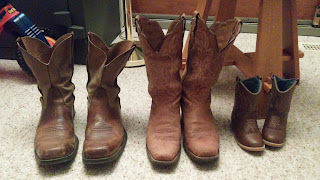Day 87: This Face Launched Thou Ships?
Student will be able to: define poetry techniques and identify them in poems.
Student will be able to: interpret poems for meaning and symbolism.
Student will be able to: interpret poems for meaning and symbolism.
Yesterday I attempted another stations activity day to work with the bajillion poetry techniques I threw at them last week: traditional vs. organic form, alliteration, assonance, consonance, graphic elements, structure, meter, prosody, and other poetic terms that I had to look up before I tried to teach them. I like stations because they allow me to do a little more differentiation than I do normally...in theory.
Last time I did stations it was for review before a test - one station involved making a poster, with craft supplies; another had a smart board game; a third was practice with a worksheet. Students moved in groups when I called time.
This lesson wasn't nearly as cool. I called it "stations" but in my head I was calling it "a four-page packet given out one page at a time." My students, realizing that the getting up and moving to a new station served no academic purpose as I had no designated supplies at that area, asked if they could stay seated and I could just pass out the next "station" to them when I called time. I agreed, and no movement occurred. Looking back, I actually had an excellent opportunity to differentiate the lesson for my different learning levels and I totally blew it. What I should have done was have the students start at one of the four stations, and when one person finished, he or she could move to the next one on her own. This way, those who wanted to move ahead could, and those who needed extra time on an objective didn't need to rush through it before they understood it. Hindsight is 20/20, of course.
For your entertainment, the poem I put in today's warm up assignment - I first read this silly poem in the fourth grade, and (for some bizarre reason) have had it memorized ever since:
Mirror, Mirror, o'er the Sink"Mirror, mirror, o'er the sink,
Tell me what you really think.
Do my lovely eyes of brown
Dazzle like a diamond crown?
Is my hair of gleaming gold
Beautiful, as I am told?
Quoth the mirror,“Yes, ’tis true.
All these things are said of you.
Still, I beg you, back away.
Clearly, you’ve not flossed today.
Kibble breath has made me fog.
Off the sink you stupid dog!”
______________________________________________________________
The Unsure English Teacher Strikes Again...(caution: very technical)
Today I realized (again) that I taught my students something wrong. I was trying to teach them consonance. Alliteration is repeating a consonant at the beginning of words - the Perky Puppy Pooped in the Park. Assonance (pronounced either asSONance or ASSonance, depending on which period I have) is when a poet repeats vowel sounds in close proximity, such as the ooh-sound in "fruit loop". Consonance, as I understood it, was repeating consonant sounds in close proximity when the consonant was NOT at the beginning of a word - thereby differentiating it from alliteration. I thought understood this to be works like think and drink - the "nk" sound was repeated. I've been telling my students they can find consonance in rhyming words that don't end in vowels. I looked in the textbook's glossary today to see that it expressly mentions consonance as NOT being rhyming words...and a quick google search says that many people think consonance and alliteration are basically the same.
Basically I'm afraid I expressly told my students the wrong thing, and I have to decide: do I a) spend a whole ten minutes explaining that I was wrong and teaching them the correct definition with examples according to our textbook, assuming that they remember the second definition and not the first, AND forgive the fact that I (the Harvard grad) was wrong? or do I b) not ever mention the word "consonance" for the rest of the year, refrain from using it on any worksheets or tests, and hope they'll forget it ever existed? It's not expressly mentioned in the curriculum so they shouldn't see it on a standardized test...and since not google AND my textbook don't seem to agree, and since I doubt my students are interested in the academic discussion of varying definitions...I'm leaning toward b. Not that admitting I'm wrong is difficult, I just feel like this is more confusing than valuable to my students.
Okay, admitting I'm wrong is difficult too. It's been a rough week - all Monday my students kept bringing up the playoff loss of my beloved Green Bay Packers, and I chose to collect and grade all 8 worksheets I've given them in the last three days (8 worksheets x 132 students = 1,056 completion grades to enter). I had this really hard-a** world history teacher back in high school whose line was "I don't collect everything I assign, and I don't grade everything I collect." As a student, I saw this as a gamble to encourage us to always do our best on work, because we never know if he'll only grade our worst efforts. As a teacher, I now realize this was a disclaimer, and quite possibly, an apology.





Comments
Post a Comment